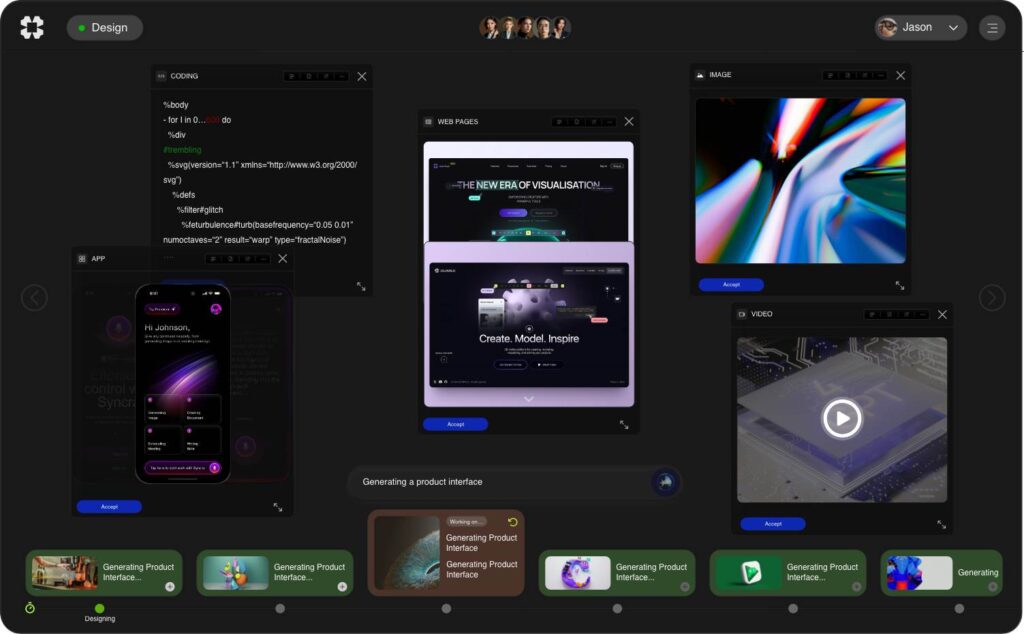In recent years, the surge in artificial intelligence (AI) capabilities has transformed numerous industries, but its impact on financial services has been particularly profound. Institutions around the globe are increasingly adopting AI systems to optimize operations, enhance customer experiences, and streamline decision-making processes. In this article, we will delve into the latest trends and solutions powered by AI in financial services, explore technical insights from leaders in the field, and highlight use cases that demonstrate the practical applications of AI.
The rise of AI in the financial sector is not merely a trend; it is a significant paradigm shift. Banks and institutions are leveraging AI technologies for fraud detection, risk assessment, customer service automation, and personalized marketing strategies. The benefits of implementing AI systems are multifold, ranging from increased efficiency to enhanced security, and they hold the promise of reshaping the future of financial operations.
One of the frontrunners in the AI revolution in financial services is Hugging Face, an AI research organization and provider of open-source machine learning tools. Hugging Face has been pivotal in making natural language processing (NLP) more accessible for financial institutions, thereby enabling them to leverage vast amounts of unstructured data—such as customer reviews, financial documents, and contracts—to extract meaningful insights. Their platform offers pre-trained models that allow financial entities to deploy AI systems without requiring extensive computational resources or expertise.
AI has become integral to risk management and compliance functions within financial services. Through machine learning algorithms, firms can forecast potential risks by analyzing historical data and identifying patterns that emerge during market fluctuations. Additionally, AI systems can monitor transactions in real time to detect anomalies, helping to prevent fraud before it occurs. Hugging Face’s contributions to NLP can enhance document verification and automate compliance checks, ensuring that financial service providers adhere to regulatory standards and minimize penalties associated with violations.
Moreover, customer service in the financial sector has been transformed thanks to AI systems. Chatbots powered by NLP tools from Hugging Face are becoming increasingly sophisticated, capable of handling a plethora of customer inquiries ranging from account inquiries to loan applications. These AI-driven chatbots not only provide immediate responses but also learn and adapt to improve their interactions, leading to enhanced customer satisfaction. Financial institutions can thereby reduce operational costs while maintaining high service levels, allowing human customer service agents to focus on more complex queries that require personal attention.
The trend of employing AI for personalized marketing in financial services has also gained significant traction. By analyzing customer behavior and preferences through data analytics, institutions can tailor their offerings to meet individual customer needs. For instance, AI systems can recommend financial products based on previous purchasing behavior, or even provide real-time investment advice influenced by market trends and an individual’s financial goals. Hugging Face’s models facilitate the analysis of customer communications to determine sentiment and gauge satisfaction levels, ensuring that marketing strategies are both effective and empathetic towards customer needs.
An interesting industry application of AI in financial services involves predictive analytics. By leveraging historical data and machine learning, financial institutions can identify customer life cycles and predict future behaviors, such as when a customer may need a loan, switch accounts, or even discontinue their services. This proactive approach allows businesses to engage with customers at the right time with the most relevant products, improving retention rates and driving revenue growth. Hugging Face’s tools can assist institutions in analyzing customer interaction data to further enhance the efficacy of their predictive models.
As the demand for AI systems within financial services continues to grow, so does the need for robust ethical frameworks. As with any technology, there is a risk of bias inherent in AI algorithms. Financial institutions must be cautious when deploying these systems to ensure they do not inadvertently discriminate against certain customers based on flawed datasets. Hugging Face has been at the forefront of addressing these ethical concerns, advocating for transparency in AI deployments and providing tools that help organizations monitor and mitigate bias in their algorithms.
Contrary to the common misconception that AI will replace financial professionals, the industry is witnessing a collaborative evolution. Professionals armed with AI insights are becoming indispensable, as they combine their domain knowledge with advanced analytics to make informed decisions. This collaboration enables financial institutions to better understand market dynamics and customer sentiments, ultimately leading to more effective strategies and improved profitability. Hugging Face’s open-source library supports this integration, offering collaborative tools that foster innovation and creativity across financial teams.
The integration of AI systems in financial services is not limited to large institutions; small and medium-sized enterprises (SMEs) are increasingly capitalizing on AI-driven solutions to remain competitive. For instance, many fintech startups leverage Hugging Face’s easy-to-use APIs and models to build innovative applications, democratizing access to AI technology. These emerging companies often operate on thinner margins than traditional banks but can achieve efficiencies and competitive advantages by automating processes and innovating service delivery.
Furthermore, the future of AI in financial services is closely tied to developments in the field of quantum computing. As this cutting-edge technology evolves, it promises to further enhance the capabilities of AI systems, allowing for more complex models that can analyze vast datasets far faster than current capabilities. Financial institutions are already exploring the potential applications of quantum AI, with Hugging Face actively investigating how quantum computing can be integrated with their existing tools to leverage the unimaginable computing power for advanced financial analytics.
In conclusion, AI systems powered by organizations like Hugging Face are no longer just an adjunct to the financial sector—they are becoming integral to how institutions operate and connect with customers. The trends we have explored illustrate how financial services are leveraging AI for risk management, customer service, personalized marketing, and predictive analytics, among other applications. As the industry continues to embrace AI technologies, it is crucial for organizations to balance the benefits and the ethical considerations involved in deploying these systems.
With advancements in AI and ongoing collaboration within the industry, the future promises exciting developments that will further solidify the transformative role of AI in financial services. The integration of AI capabilities is paving the way for smarter, more efficient operations, enabling financial professionals to act with clarity and foresight in an increasingly complex environment—a true hallmark of a modern financial institution in the AI era.
**Sources:**
1. Hugging Face, Exploring the capabilities of NLP in financial applications, [huggingface.co](https://huggingface.co)
2. KPMG, The AI revolution in financial services: Trends and insights for 2023, [kpmg.com](https://home.kpmg/xx/en/home/insights/2020/06/the-ai-revolution-in-financial-services.html)
3. McKinsey & Company, Artificial Intelligence in Banking: The Next Frontier, [mckinsey.com](https://www.mckinsey.com/industries/financial-services/our-insights/artificial-intelligence-in-banking-the-next-frontier)
4. Deloitte, AI and the Future of Financial Services, [deloitte.com](https://www2.deloitte.com/us/en/insights/industry/financial-services/artificial-intelligence.html)
5. PwC, AI in Financial Services: Prepare for a World of Change, [pwc.com](https://www.pwc.com/gx/en/financial-services/pdf/ai-in-financial-services.html)





















